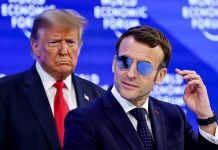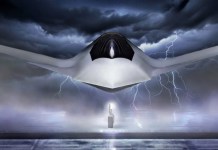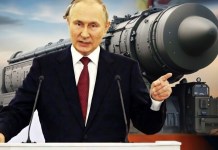Is the Turkish President on a mission to revive the Ottoman Empire? Recently, President Erdogan opened the world’s largest airport in Istanbul in what experts see as another step towards his “secret ambition” of reviving the Ottoman Empire. The grand opening ceremony saw the presence of the Bulgarian Prime Minister Boyko Borisov; Serbian President Alexander Vuchich; Emir of Qatar Sheikh Tamim bin Hamad Al Tani; and one from Turkey-fostered Pan-Turkist camp Kyrgyzstan Sooronbay Zheenbekov. EurAsian Times looks at an editorial of EAD.
Ataturk Airport to Cease Operations
The opening of the airport took place on a national holiday – Republic Day. But for the first time, the celebration was not held in the republican capital of Ankara. It is no coincidence that the former Istanbul airport, which bore the name of Ataturk will not only cease to be an airport but will also lose its name. Critics speculated that the airport could be named after Erdogan himself.
Turkey was once influenced by the cult of Mustafa Kemal – had staged an ethnocide of all non-Turkish peoples in the country. Unlike him, Erdogan, it would seem, does not require any special servility towards himself.
The foreign policy of modern Turkey is intertwined in a unique symbiosis of Islamism, Pan-Turkism and revanchist imperialism, which in the Erdogan version do not contradict each other, but, on the contrary, complement each other.
This is evident in Erdogan’s visit to Moldova, whose territory in the past was also part of the Ottoman Empire. He did not hesitate to remind “Despite the fact that we do not have common borders with Moldova, we consider it a neighbouring country because we share historical relations. He further said that Moldova was a special country because it includes Gagauzia, people whom we consider our people.
Erdogan’s Influence in Moldova Politics
It would seem that the time for Moldova to attend to the prospect of Gagauz separatism, fueled by Turkey, that the Moldovan authorities are quite successful in fighting off the prospects.
Furthermore, Erdogan promised to take on the Circus of Chisinau and start a country whose European production quotas came into effect after signing the association with the EU. Last year, the trade turnover between the countries rose to the level of $400 million, making up 5% of the total foreign trade of Moldova.
In September, Moldova expelled seven Turkish teachers, suspected of ties with Gulen from the ‘Orizont’Turkish High School. This no doubt stirred up an outrage. It is known that Turkish authorities and Erdogan himself have designated the group as a ‘terrorist organization’ after a failed coup attempt in 2016.
In the Western Balkans, Erdogan was very thoroughly registered in Bosnia and Herzegovina, in its Muslim part, where Turkey is perceived the same way as Germany in Croatian, and Russia in Serbian. During the recent exacerbation between Ankara and Washington, Bakir Izetbegovic unequivocally sided with the Turkish leader. “Mr Erdogan, you are not only the President of Turkey, you and our President.”
Erdogan arrived last year in Serbia. It would seem that in the past rivers of blood had spilled between these countries, and it was the Turks who were especially zealous in this, but present-day Belgrade now builds a policy with the descendants of the Ottomans on the principle of ‘who remembers the old.’
Still, the bilateral trade turnover now amounts to $4 billion; and, in addition, Turkey has promised to build a new Belgrade-Sarajevo highway, which will connect the two parts in the past of a single country. Again, the ‘Turkish Stream’, as well as Serb Muslims living in the province of Sanjak (Raška), who love Erdogan, seem to be even more than their co-religionists: in any case, they made him an honorary citizen of their regional center – Novi Pazar.
Perhaps, the current Turkish regime is not entirely clear in the Balkans only with Albania and, accordingly, with Kosovo, which, although considered to be predominantly Muslim regions, but, as some wise people said, “the national religion of the Albanians is Albania.”
When the Turkish secret services arrested and brought six teachers from the Gyulenov lyceums in Kosovo to Turkey, the ‘prime minister’ of the Albanian enclave of Serbia Ramush Haradinaj rejected Serbia’s head of the local Interior Ministry Flamyur Sefay and the director of the Kosovo intelligence agency Driton Gashi. He won a tough rebuff of Erdogan himself, who accused him of supporting terrorism. And subsequently declared his willingness to recognize any agreement between the Serbs and Albanians.
US and Turkey Relationship
And what, in fact, started the confrontation between the United States and Turkey? The main reason was Erdogan’s aggressive policy towards Greece. That is, the Greeks for the Ottoman heir are a historical enemy, from whom they once took away the historical capital and part of the living space, and it would be better if it were not there at all. Therefore, only last year, Turkish combat aircraft regularly violated the airspace of Greece, the navy blocked the development of Cyprus, paratroopers were captured, and taken hostage by the Greek military.
Diplomats demanded a revision contract, divided the ‘Ottoman heritage’ between the Balkan states, challenging the affiliation of eighteen Greek islands and one hundred and fifty small rocky areas of the ‘gray zone’ of the Aegean Sea. Moreover, Ankara agreed to purchase S-400 systems from Russia, which nullified all the activities of Greek aviation and began to make provocative statements.
And now the Americans are trying to punish Ankara and rejected to supply Turkey with their fifth-generation F35 fighter-jets, impose sanctions against it, and raise duties on the supply of Turkish aluminum and steel. The arrest of American pastor Andrew Brunson who was accused of espionage by Turkey remained a massive issue between the US and Turkey.
In retaliation, Erdogan threatened Washington with international arbitration and what followed was back-channel diplomacy and negotiations and eventually the US had to reconcile with the Turks and Greeks at the next NATO summit.
More News at EurAsian Times
- India Needs to Restore Confidence After Dokalam Issue: China
- Armenia EU Agreement: Armenia Celebrates Joining Europe
- Chinese FM Reacts To Gen Rawat’s Remarks, Says Will Exert Rights In Doklam
- Israel welcomes Indian Air Force for Multilateral air exercise at “Blue Flag-17”




